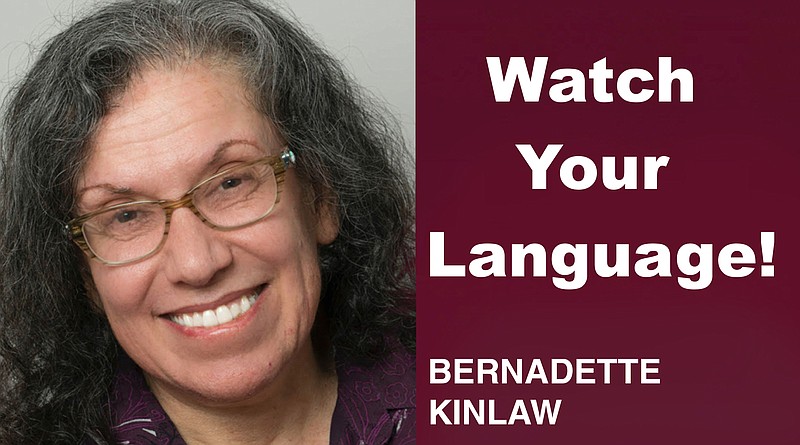This week I return to words and phrases that made me curious or made me cringe.
Do people truly need to preplan? Does this mean you make a plan to start planning? Or do you start planning so that you can plan after? Also when you plan, you don't need to say you will plan ahead. You can't plan behind.
And do you preprint things or print them?
Why do things sometimes happen in broad daylight? The entry in the dictionary for broad that mentions broad daylight uses the definition of open, full. Is daylight broad and nighttime narrow? We never hear of a crime occurring in broad night.
Is selfsame an essential word? It's the same as same. What's the purpose of a synonym that just adds a syllable? This is similar to oftentimes, which nearly always can be shortened to often.
Some things are futile. That's a powerful adjective meaning something just won't work. Why do we need an exercise in futility? Do we need to practice futility before becoming an expert in the venture?
Why do companies offer money-saving coupons? Isn't the purpose of a coupon to save money for you? Don't people know the meaning of coupon?
I have seen at least two commercials that advise that you don't take the medicine being advertised if you are allergic to that very medicine. Is the company assuming that the public is less than intelligent?
I read this recently: "[President Jovenel Moise] says the 1987 constitution gives the legislative branch too much power and is one of the root causes of Haiti's political instability."
Isn't a root cause the same thing as a cause?
IF YOU WILL
The phrase if you will has made me cringe recently. My search of language sites told me that you can excise it in most cases.
The Grammarist defines it concisely: "If you will, meaning if you will allow me to use this phrase, is a hedge phrase, and it could usually be removed. Writers often use it to apologize for a weak phrase — often a bad metaphor, a corny coinage or a phrase the writer is reluctant to use."
Why would you use if you will to call attention to something you think sounds odd? If you believe you need the listener's approval to use a phrase, it's likely not a great one to use. Maybe I'm overreacting.
The headline on an article on Grammarphobia seems to answer the question of when we need to use it: Is "if you will" a verbal tic? The story that follows suggests that the answer is "yes." My favorite parts:
"We jokingly used [if you] in a sentence: 'First I take off my left shoe, and then, if you will, my right.'
"The linguist Geoffrey K. Pullum ... has compared it to the use of 'like' as a filler. In his article, Pullum plucks more than a dozen sentences from the Wall Street Journal, containing what seem to be 'quotes from educated and prosperous middle-aged persons -- CEOs and so on.' And in each case, he replaces the speaker's 'if you will' with 'like.'"
I was encouraged that I couldn't find its use on The Washington Post site in a quick search. But I'm sure it's in there.
The dictionary offered one sentence fragment from writer Louis Auchincloss: "a kind of preoccupation, or obsession, if you will."
Wouldn't that sentence be fine if it ended before adding if you will?
WHERE'S MY TOOTHBRUSH?
In an article I read recently on tech practices, I encountered the phrase password hygiene. This just made me laugh. A tech security website defines the phrase:
"Password hygiene refers to the degree to which a user's passwords are selected and managed according to secure best practices.
"The practices important for good password hygiene include, but are not limited to, selecting passwords that are not obvious, perfunctory, or common; selecting a unique password for each account; avoiding the temptation to write passwords for easy recall; and avoiding the temptation to share passwords with others for convenience."
I totally support the concept of carefully choosing passwords. But is it really hygiene? Do I need to gargle before I select a password?
HIS OWN/HER OWN
I often delete the word own when a writer uses it after his or her. Own adds an emphasis that usually isn't needed. You don't need own in these examples from The Washington Post.
"The senator was more definitive about his own future."
"[Agencies of the] federal government have taken matters into their own hands."
"Micro-celebrities and celebrity-wannabes [are] documenting their own lives for the rush of receiving the approval of others ..."
In this example, both their and own could be taken out:
"States have been approving their own coronavirus aid packages ..."
WEEPY WORD
I need to look up lachrymose every time I read it. It means weepy or sorrowful. Its root is from the Latin word lacrimosus, meaning teary.
Don't ask me tomorrow what lachrymose means. I will have forgotten, and that will make me lachrymose.
Sources include The Washington Post, The Grammarist, Grammarphobia, Merriam-Webster, Plurilock. Reach Bernadette at
bkwordmonger@gmail.com
